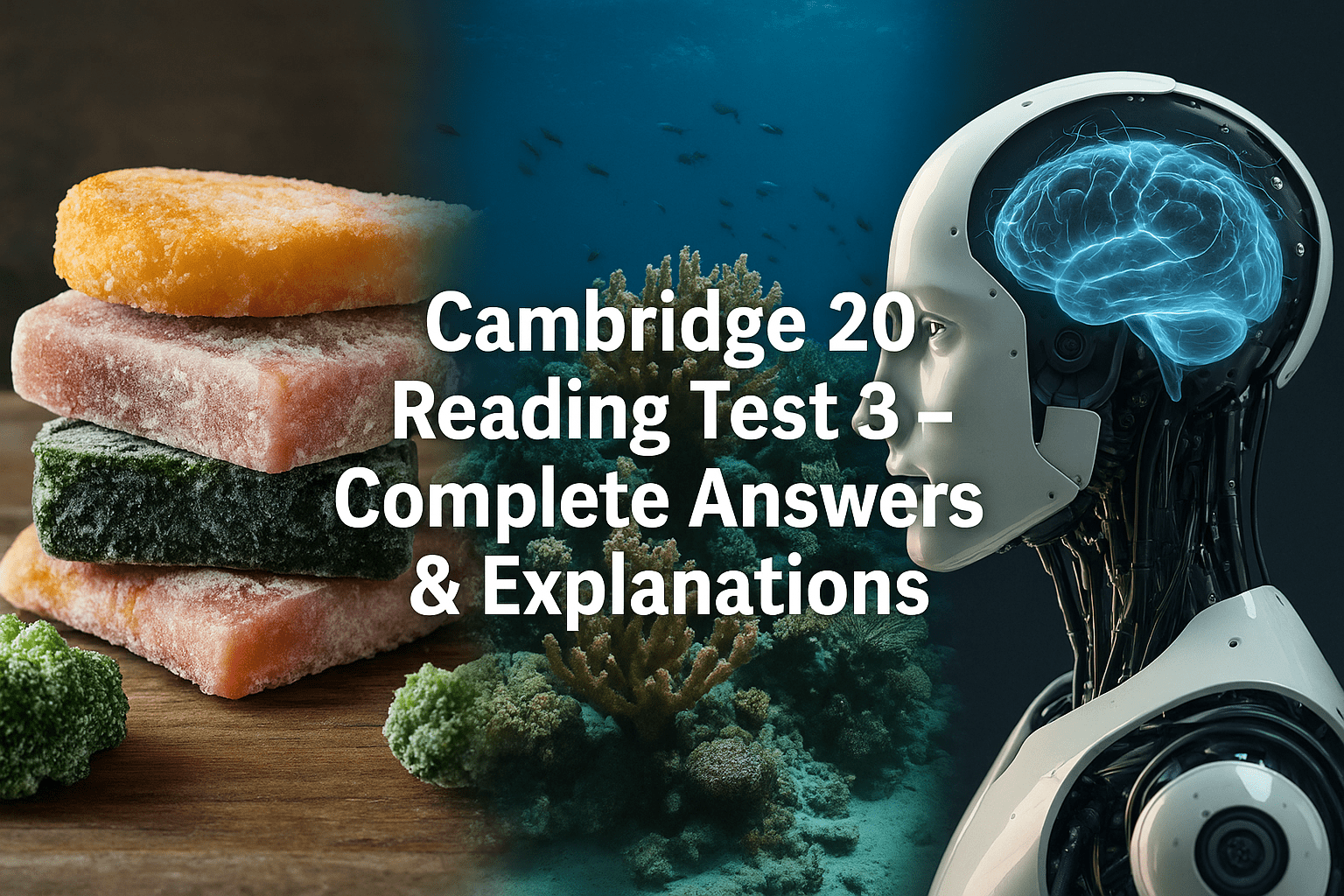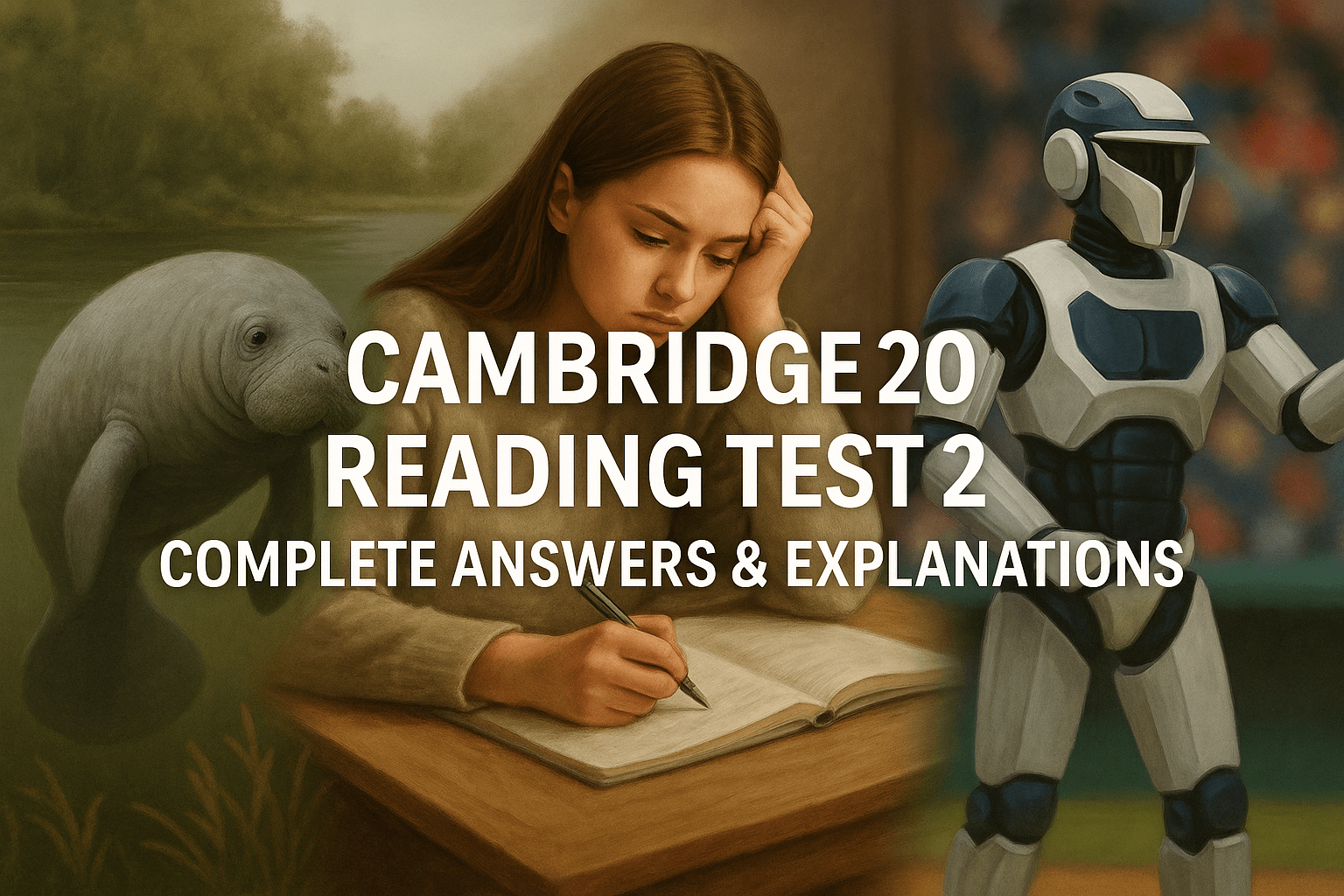- 🌟 What Are Keywords in IELTS Reading?
- 🔹 Why Identifying Keywords is Critical for IELTS Reading
- 🕒 Step-by-Step Keyword Identification Strategy
- 📖 Example of Identifying Keywords in Action
- 🏋️♂️ How to Practice Identifying Keywords Daily
- ❌ Common Keyword Mistakes to Avoid
- ✅ Quick Keyword Checklist for Band 7–9
- ❓ FAQ: Identifying Keywords in IELTS Reading
- 🏆 Conclusion
If you want to achieve Band 7–9 in IELTS Reading, one of the most essential skills is identifying keywords in IELTS Reading. As a global IELTS trainer, I’ve seen countless students waste time by reading the passage word for word. The secret to answering questions quickly and accurately often lies in spotting the right keywords in the questions first.
In this blog, I’ll guide you through a complete strategy to identify, use, and practice keywords effectively.
🌟 What Are Keywords in IELTS Reading?
Keywords are the high-value words in the question that help you locate the answer in the passage. They are usually:
- Names of people, places, and organizations
- Dates, years, numbers, and percentages
- Unique words or technical terms
- Important nouns and verbs that carry the core meaning
Example:
- Question: “In which year was the bridge completed?”
- Keywords: year, bridge, completed
These words will guide your eyes to the correct part of the passage.
💡 Tip: Avoid underlining common words like the, is, in, or of. They don’t help you locate answers.
For official test information, visit IELTS.org or British Council IELTS.
🔹 Why Identifying Keywords is Critical for IELTS Reading
In the IELTS Reading test, time is limited:
- 3 passages / 40 questions
- 60 minutes total
If you fail to identify keywords, you will:
- Spend too much time reading irrelevant text
- Miss answers hidden in paraphrased sentences
- Struggle with True/False/Not Given and Matching Information questions
When you master identifying keywords in IELTS Reading, you can:
- Locate answers quickly
- Reduce stress and confusion
- Boost accuracy for Band 7–9
To see how this fits into the bigger strategy, visit our IELTS Reading Skills for Band 7–9.
🕒 Step-by-Step Keyword Identification Strategy
Here’s my step-by-step guide for identifying and using keywords effectively:
1. Read the Question Carefully
- Before even looking at the passage, read the question or statement
- Ask yourself: Which words are the most important to find the answer?
Example: “The company introduced its first electric car in 2015.”
Keywords: company, first electric car, 2015
2. Underline or Highlight High-Value Words
Mark the names, numbers, and unique terms.
- Ignore common words and articles
- Use a pencil (in paper-based) or your finger (in computer-based) to track keywords visually
3. Predict Synonyms and Paraphrases
IELTS loves to reword keywords in the passage:
- first → initial, original, earliest
- electric car → battery-powered vehicle
- company → manufacturer, firm, organization
🎯 Pro Tip: Thinking about possible synonyms while underlining keywords will help you spot answers faster.
4. Scan the Passage for Keywords or Synonyms
- Quickly move your eyes across the passage (scanning technique)
- Stop at any mention of the keyword or its synonym
- Verify the answer using the surrounding text
5. Double-Check for Distractors
IELTS often includes trap words—keywords that appear but don’t answer the question. Always read a few words before and after to confirm context.
📖 Example of Identifying Keywords in Action
Question: “The scientist received a Nobel Prize in 1998 for his research.”
Keywords: scientist, Nobel Prize, 1998, research
Passage: “In 1998, Dr. Green was awarded the Nobel Prize for his groundbreaking study on genetics.”
Analysis:
- Scientist → Dr. Green
- Nobel Prize → Same
- 1998 → Same
- Research → groundbreaking study on genetics
Answer confirmed because all keywords or their paraphrases match.
🏋️♂️ How to Practice Identifying Keywords Daily
1. Keyword Underline Drill (5 min/day)
- Take 5 IELTS questions and underline the high-value words
2. Synonym Prediction Exercise
- For each keyword, write 2–3 possible synonyms
3. Timed Practice with Cambridge Tests
- Read the questions first
- Highlight keywords
- Scan the passage to confirm answers
4. Review and Reflect
- Check mistakes and see which keywords you missed or misunderstood
For more practice, visit IDP IELTS.
❌ Common Keyword Mistakes to Avoid
- Underlining everything – Focus only on high-value words
- Ignoring synonyms – IELTS rarely repeats exact wording
- Not double-checking context – A keyword alone may mislead you
- Skipping this step – Leads to slow and inaccurate answers
✅ Quick Keyword Checklist for Band 7–9
Before starting any IELTS Reading passage, ask yourself:
- Did I underline the names, numbers, and unique words?
- Did I predict synonyms for key terms?
- Can I scan the passage quickly to match keywords?
- Did I avoid underlining unnecessary words?
If yes, your keyword strategy is strong and will boost both speed and accuracy.
❓ FAQ: Identifying Keywords in IELTS Reading
Q1: Which questions rely most on keywords?
True/False/Not Given, Matching Information, and Multiple Choice questions.
Q2: How many keywords should I underline per question?
Usually 2–4 keywords are enough for most questions.
Q3: Can I rely only on keywords to find answers?
No, always verify the meaning in context to avoid traps.
Q4: Should I underline keywords in the passage too?
Yes, for visual guidance, but avoid marking every word.
Q5: How can I improve keyword recognition speed?
Practice daily with a timer and combine it with skimming and scanning techniques.
🏆 Conclusion
Identifying keywords in IELTS Reading is a game-changer for both speed and accuracy. By underlining the right words, predicting synonyms, and avoiding traps, you can locate answers quickly and confidently. Combine this strategy with skimming, scanning, and paraphrasing, and you’ll be ready for Band 7–9 success.
Now, pick your next practice passage, highlight your keywords, and watch your reading score improve!





